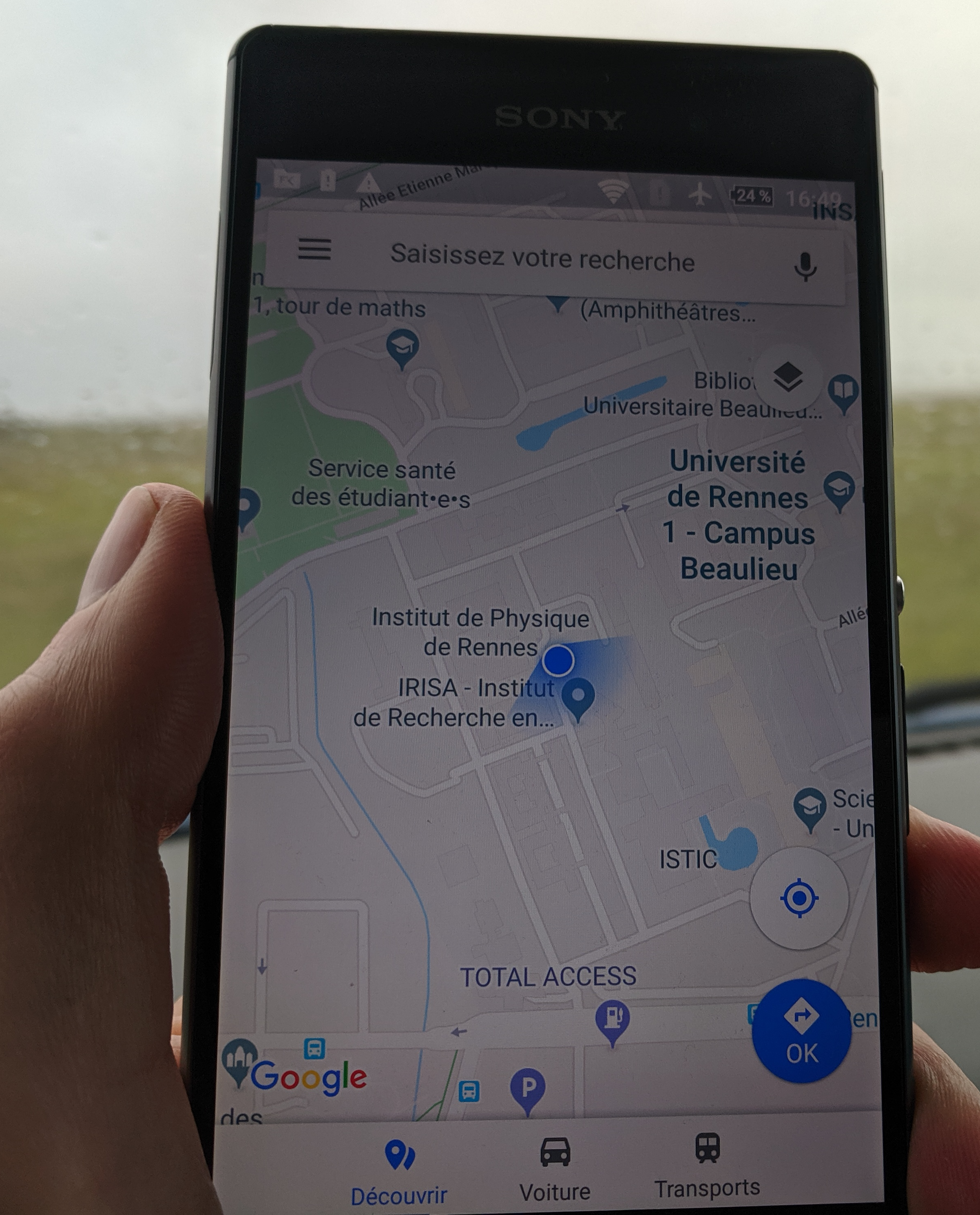Section: New Results
Location assessment from local observations
Participants : Yoann Maurel, Paul Couderc [contact] .
Confidence in location is increasingly important in many applications, in particular for crowd-sensing systems integrating user contributed data/reports, and in augmented reality games. In this context, some users can have an interest in lying about their location, and this assumption has been ignored in several widely used geolocation systems because usually, location is provided by the user’s device to enhance the user’s experience. Two well known examples of applications vulnerable to location cheating are Pokemon Go and Waze.
Unfortunately, location reporting methods implemented in existing services are weakly protected: it is often possible to lie in simple cases or to emit signals that deceive the more cautious systems. For example, we have experimented simple and successful replay attacks against Google Location using this approach, as shown on Figure 3.
An interesting idea consists in requiring user devices to prove their location, by forcing a secure interaction with a local resource. This idea has been proposed by several works in the literature; unfortunately, this approach requires ad hoc deployment of specific devices in locations that are to be "provable".
We proposed an alternative solution using passive monitoring of Wi-Fi traffic from existing routers. The principle is to collect beacon timestamp observations (from routers) and other attributes to build a knowledge that requires frequent updates to remains valid, and to use statistical test to validate further observations sent by users. Typically, older data collected by a potential attacker will allow him to guess the current state of the older location for a limited timeframe, while the location validation server will get updates allowing him to determine a probability of cheating request.The main strength is its ability to work on existing Wi- Fi infrastructures, without specific hardware. Although it does not offer absolute proof, it makes attacks much more challenging and is simple to implement.
This work was published at CCNC’2019 [1]. We are currently working in broadening this approach, in particular using other attributes of Wi-Fi traffic beside beacon timestamps, and combining the timestamp solution with other type of challenges to propose a diversity of challenges for location validation servers. We are also working on the attack side, which presents interesting perspectives regarding the actual strength of existing services and the potential protection improvements than our approach can provide.



